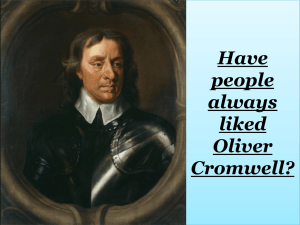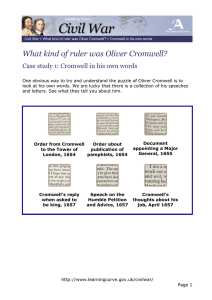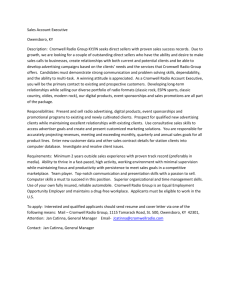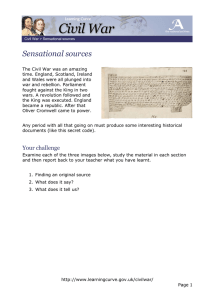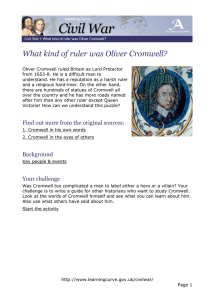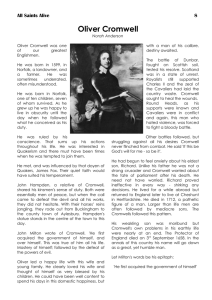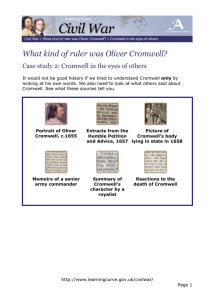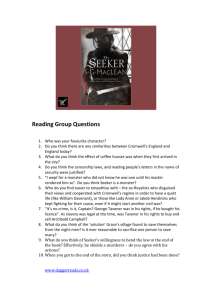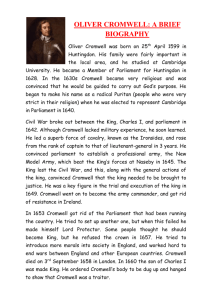What kind of ruler was Oliver Cromwell? London, 1 December 1654
advertisement
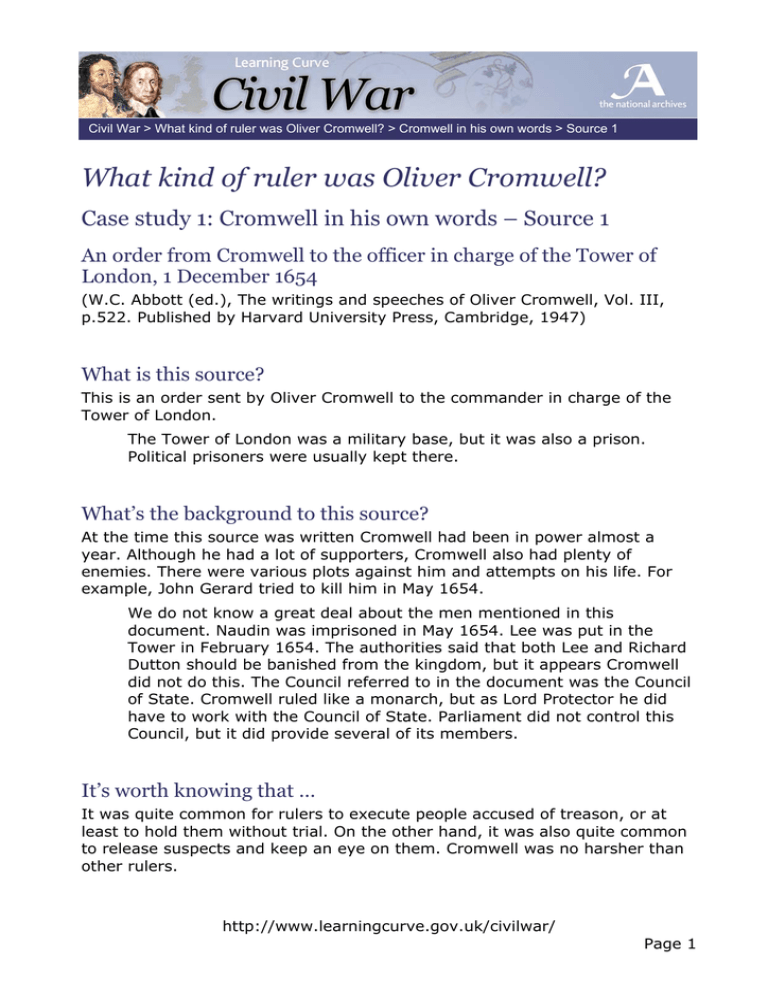
Civil War > What kind of ruler was Oliver Cromwell? > Cromwell in his own words > Source 1 What kind of ruler was Oliver Cromwell? Case study 1: Cromwell in his own words – Source 1 An order from Cromwell to the officer in charge of the Tower of London, 1 December 1654 (W.C. Abbott (ed.), The writings and speeches of Oliver Cromwell, Vol. III, p.522. Published by Harvard University Press, Cambridge, 1947) What is this source? This is an order sent by Oliver Cromwell to the commander in charge of the Tower of London. The Tower of London was a military base, but it was also a prison. Political prisoners were usually kept there. What’s the background to this source? At the time this source was written Cromwell had been in power almost a year. Although he had a lot of supporters, Cromwell also had plenty of enemies. There were various plots against him and attempts on his life. For example, John Gerard tried to kill him in May 1654. We do not know a great deal about the men mentioned in this document. Naudin was imprisoned in May 1654. Lee was put in the Tower in February 1654. The authorities said that both Lee and Richard Dutton should be banished from the kingdom, but it appears Cromwell did not do this. The Council referred to in the document was the Council of State. Cromwell ruled like a monarch, but as Lord Protector he did have to work with the Council of State. Parliament did not control this Council, but it did provide several of its members. It’s worth knowing that … It was quite common for rulers to execute people accused of treason, or at least to hold them without trial. On the other hand, it was also quite common to release suspects and keep an eye on them. Cromwell was no harsher than other rulers. http://www.learningcurve.gov.uk/civilwar/ Page 1 Civil War > What kind of ruler was Oliver Cromwell? > Cromwell in his own words > Source 1 Cromwell was extremely aware of plots against himself and his rule. His main concern was with plots by ‘enemies’ of the country such as Catholics and foreign powers. His government had a good intelligence service to guard against these threats. Your turn: What can we learn from this source? 1. What orders did Cromwell give? 2. What did the men in the Tower have to do? 3. How does this source help us to understand attitudes towards Cromwell’s rule? 4. Does this source provide convincing evidence that Cromwell was generous and merciful towards his enemies? 5. What overall impression does this source give of Cromwell? Source 1 http://www.learningcurve.gov.uk/civilwar/ Page 2
